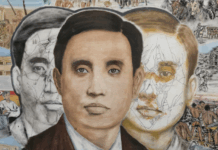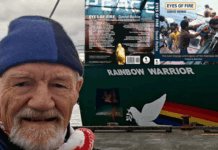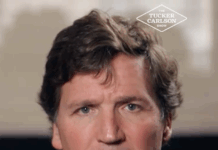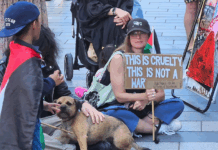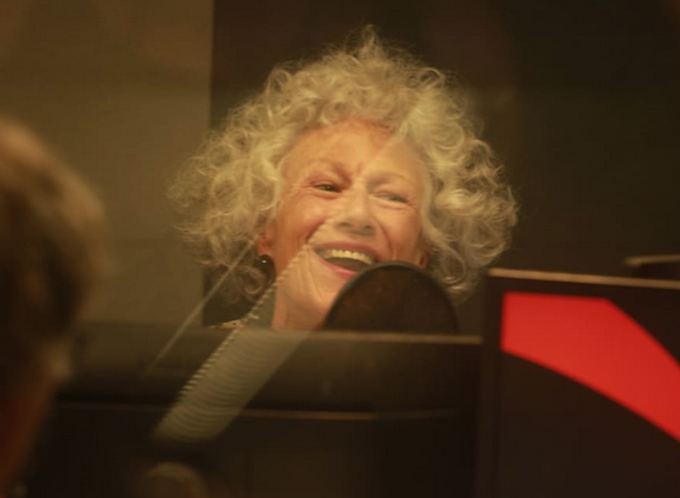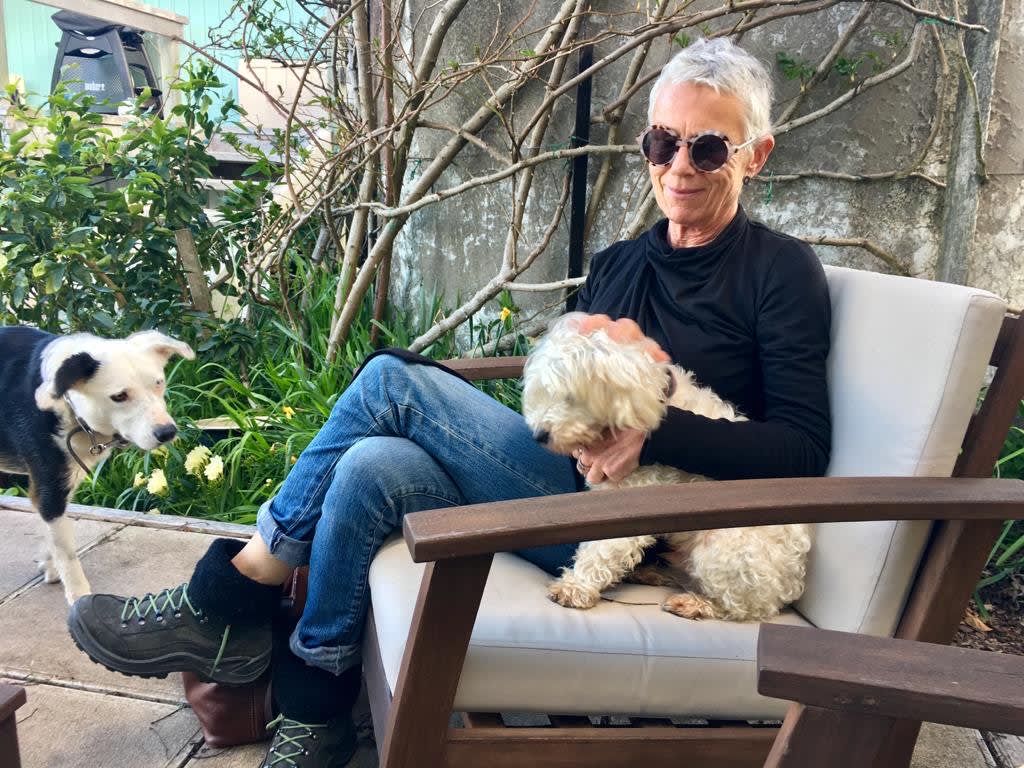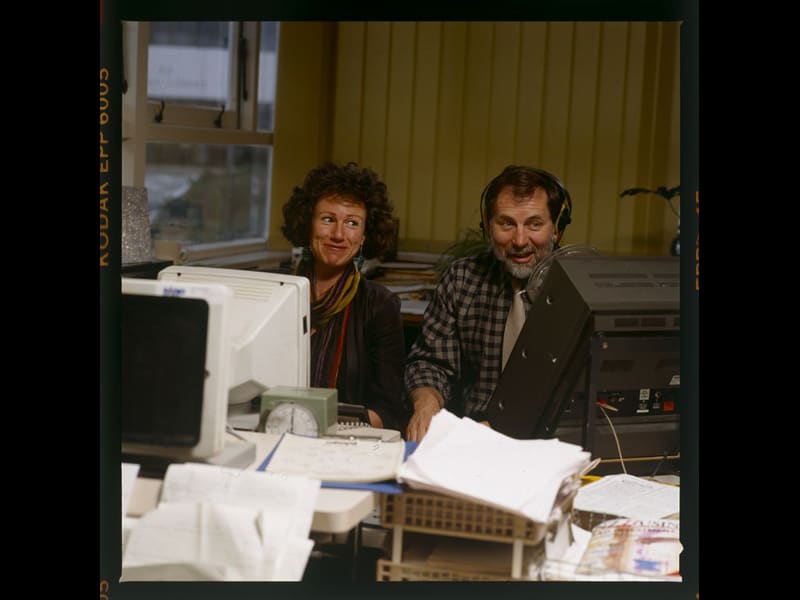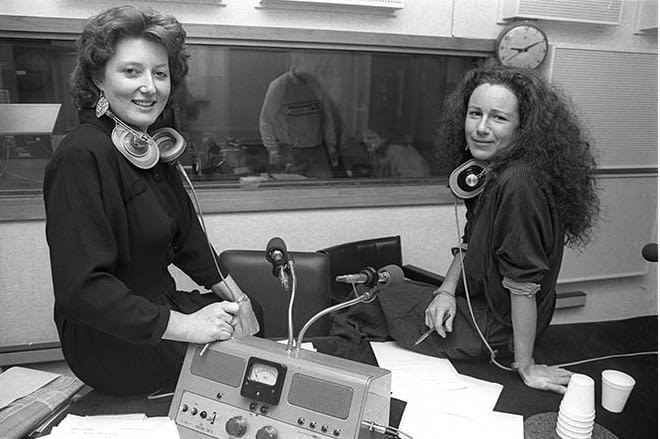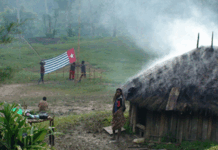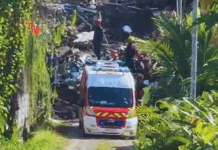After 21 years, Radio New Zealand’s Kim Hill has hosted Saturday Morning for the final time.
In the final hour of the show on Saturday, the beloved broadcaster chatted to long-time colleague Bryan Crump about some of her favourite songs.
Like many former Saturday Morning guests, Kim found it difficult to select just a handful of songs for the regular segment “Playing Favourites”.
“Because I love so much music,” she told Bryan.
Born Fiona Anderson Hill in Shropshire, UK, the broadcaster who was to become known as Kim Hill moved with her family to Ōtorohanga at 15.
“I was a posh white kid and I didnt know one end of a basketball from the other.”
As a teenager in the North Island town, she enjoyed sunbathing in a mixture of olive oil and vinegar, eating feijoas and sneaking out with her new friend Colleen Mcleod who happened to live downstairs.
“I would go out my door, having said goodnight to my parents, and I would go down to Colleen’s house and we would go out on the town. We’d go round with boys in V8s, around the Tron.”
‘Mad Men’ parenting
In those days, the parenting on offer was “very sort of Mad Men“, Kim says.
“My father had a shotgun that he once greeted me at the door with when a boy dropped me off. That was his idea of humour. Honestly, I’ve never seen anybody go so white.”
While picking raspberries with Colleen in Tapawera one summer, Fiona decided to change her name to ‘Kim’ and Colleen changed hers to ‘Lee’.
Yet after Kim’s family moved to another town, she lost touch with the “staunch” friend she describes as “my protector and my coming-of-age facilitator”.
“If she’s out there and anybody knows Colleen Mcleod, born Ōtorohanga, brother called ‘Sniggs’, she needs to be told how important she was to me, she was massive.”
After high school, Kim worked at various jobs including a Christchurch massage lounge, which she knows sounds “very dodgy” but wasn’t.
“They had little curtained cubicles and I would have known if something untoward was going on. Nothing untoward ever went on, strange as that sounds.”
Key programmes
After completing a post-grad journalism course at Canterbury University, Kim first joined RNZ in 1985, later presenting key programmes, including Nine to Noon and Morning Report.
Her punchy and penetrating interviewing style has not been without critics, she says.
The British writer Tony Parsons, who hung up on Kim during an interview before saying “You’ve got your head up your arse”, and New Zealand journalist Karl du Fresne, who once called her “dominatrix”, come to mind.
“[du Fresne] hated me because I hadn’t given a very nice interview with [former Australian prime minister] John Howard and also I say ‘filum’ [an Irish pronunciation of the ‘film’] … Because he criticised me saying ‘filum’, I’ve never been able to stop in case he thinks he’s won.
“So I do it all the time now.”
Her favourite interviewees include the late New Zealand scientist Paul Callaghan who she describes as a “genius”. (Kim spoke to Paul Callaghan in 2009 and 2014.)
“He knew so much but he was still awestruck by it . . . He was not fazed by not understanding. It fascinated him that things were so complex and he was able to make them so simple.”
North Carolina musician and author John Darnielle of the indie rock band Mountain Goats is another of her favourites: “He’s so clever and a very good writer … I love him.”
Kim Hill: The Jim Mora interview
“There is nobody who fails to be interesting”https://t.co/HhIBsSYZWO— RNZ Sunday Morning with Jim Mora (@RNZSunday) November 25, 2023
More RNZ work
In 2024, Kim Hill will continue to do some work for RNZ, chief executive Paul Thompson recently told Checkpoint.
She concluded her final Saturday Morning show with the following message:
“I am very very grateful to Radio New Zealand and to the producers and to the listeners. I have been privileged and enriched by doing this programme. It’s been absolutely wonderful.
“This is my happy place — Saturday mornings in the studio, hearing from people who are enjoying it. And I’m not dying. I’ll be around doing something in the future. Thank you all so much. Thank you.”
This article is republished under a community partnership agreement with RNZ.


